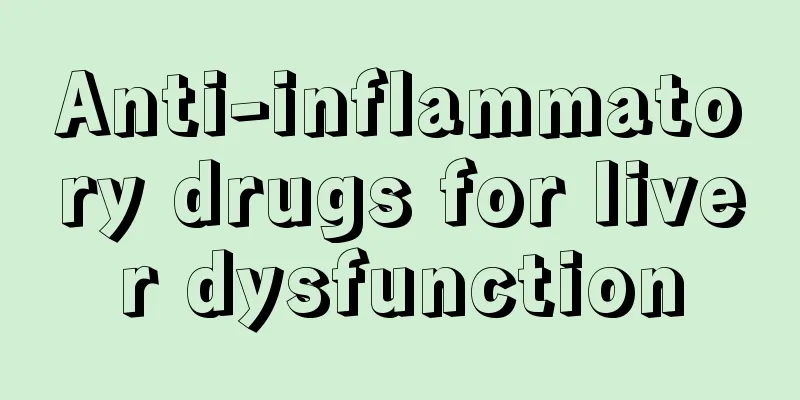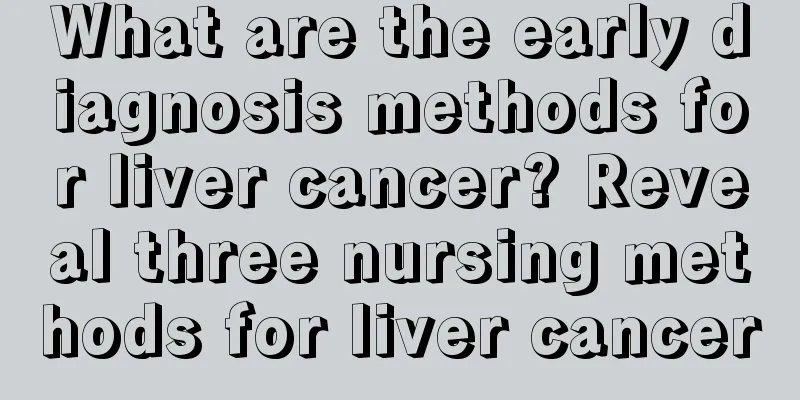Anti-inflammatory drugs for liver dysfunction

|
The liver is an extremely important organ for people, because the liver's main ability is to remove toxins from the body, keep the body clean, and protect the body from various bacteria and viruses. If the liver is overloaded, it will cause great harm to the body. For example, liver dysfunction is a common problem. Let's take a look at what anti-inflammatory drugs are there for treating liver dysfunction? However, since the liver has enormous storage and regeneration capabilities, relatively mild damage will generally not cause obvious functional abnormalities through the liver's compensatory function. If the damage is severe and extensive (one-time or long-term repeated damage), it causes obvious abnormal changes in liver function such as metabolic disorders, reduced detoxification function, bile formation and excretion disorders, and bleeding tendency, which is called liver insufficiency. If liver dysfunction occurs, it is important not to use antibiotics that may cause certain damage to the liver and kidneys. You can choose to use some penicillin or cephalosporin antibiotics for treatment. This will cause little damage to liver function. At the same time, you also need to test your liver function regularly and maintain good living and eating habits to help restore liver function. 1) Drugs are mainly cleared through the liver: including macrolide drugs (excluding erythromycin esters), lincomycin, clindamycin, midecamycin, roxithromycin and azithromycin, which are mainly excreted through bile. A considerable amount of drugs with high concentrations in bile may be metabolized and inactivated in the liver, and a small amount is excreted in the urine. When liver function is impaired, drug excretion is slower, but no obvious liver toxicity occurs. Therefore, it can be used with caution, at the original therapeutic dose or at a reduced dose. Clindamycin and lincomycin are metabolized in the liver and excreted with bile and feces. When liver function is impaired, their elimination half-life is significantly prolonged and blood drug concentrations increase, which can cause an increase in serum transaminase. However, the increase in transaminase and hyperbilirubinemia may be caused by drug interference in colorimetric determination, not hepatotoxic reactions. Therefore, they should be used with caution and the dosage should be reduced. 2) Antibiotics that are mainly or substantially eliminated through the liver: including chloramphenicol, ampicillin esters, erythromycin esters, rifampicin, Isoniazid, amphotericin B, tetracyclines, sulfonamides, ketoconazole, miconazole, etc., when liver function is impaired, the clearance and metabolism of drugs are reduced, which may lead to toxic reactions and should be avoided. |
<<: Can chronic gastritis eat rice noodles
>>: Can people with gastritis eat jujubes?
Recommend
Things to note when using nasal spray
The current living environment is affected by air...
Is it better to take a bath with soap or shower gel?
Taking a bath with soap is what we often call per...
What is the effective treatment for numbness in legs and feet?
Numbness in the legs and feet makes many people f...
Skin cancer will basically appear as nodular or cauliflower-like ulcers
Skin cancer will basically appear as nodules or c...
Subcutaneous fibrous tissue hyperplasia
Hyperplasia is a very common symptom and can occu...
What are the treatments for lung cancer? Hospitals often use 4 methods to treat lung cancer
Lung cancer is a very harmful disease. In recent ...
I've had dark circles under my eyes for years
Every girl hopes that her face will be rosy and s...
Is shrimp plus vitamin C toxic?
Shrimp is a kind of seafood. Many people like to ...
The relationship between lung cancer and smoking
The exact cause of lung cancer is still unknown. ...
Identification of agarwood incense sticks
Many people buy agarwood incense sticks. Some peo...
What's a good way to deal with heel rubbing
I don’t know if you have this idea before: clothe...
What is the reason for blue veins on feet
Many symptoms in the human body reflect various c...
Diet at different stages of endometrial cancer
We all know that any disease will cause certain h...
What are some ways to increase hair volume?
In daily life, changes in weather or excessive me...
How to control uterine cancer
Among cancer diseases, uterine cancer is one of t...









